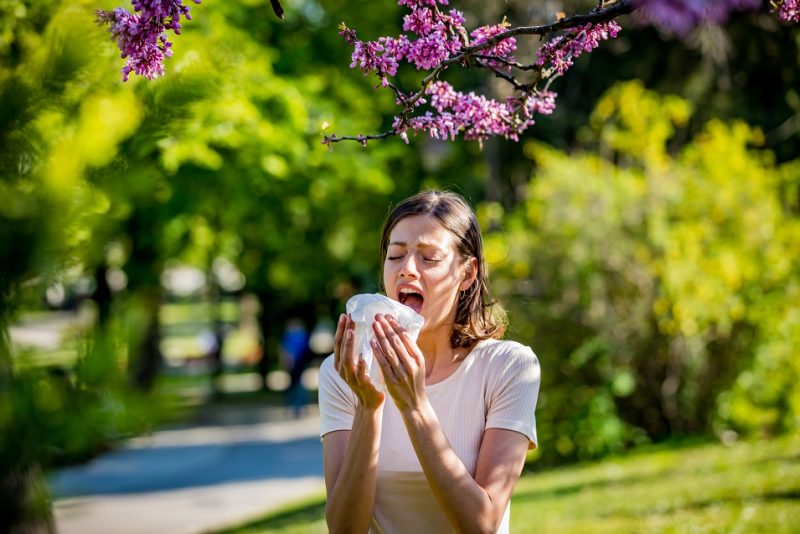Millions of people suffer from seasonal allergies, and Pennsylvania’s allergy season can be long and brutal. Allergy season in the state can start as early as February and last as long as the first hard freeze of winter. If you are one of the many Pennsylvanians who experience rough springs and summers, try these simple methods to keep your allergies under control.
Why do I have allergies?
Seasonal allergies develop when the immune system overreacts to something in the environment.
“The immune system plays a vital role in safeguarding your body against diseases, viruses and infections,” said John A. Holets, MD, a physician with Penn Highlands Family Medicine in Monongahela, Penna. “But sometimes, it can misidentify substances, such as pollen, as a harmful invader and respond excessively, triggering an allergic reaction. The immune system tries to combat the perceived invader by instructing cells to release histamine, which leads to increased mucus production, inflammation and other symptoms of seasonal allergies.”
What are common allergens in Pennsylvania?
Spring is the worst time for those with tree pollen allergies. Common tree allergens in Pennsylvania include hickory, ash, maple, walnut, oak, willow and mulberry. Tree pollen usually dies down in the summer, but that is also when grass pollen begins to pick up. Common grass allergens include bent, fescue, orchard, brome, sweet vernal and timothy grass.
How can I reduce my symptoms?
Unfortunately, there is no cure for allergies. There are, however, steps you can take to reduce your symptoms.
- Reduce your exposure. Check your local pollen forecast and stay indoors as much as possible on days with high pollen counts. Mornings are often worst, and dry, windy days can be especially bad. If possible, keep your windows closed when pollen counts are particularly high.
- Avoid yardwork as much as possible. Mowing, gardening and weeding stir up allergens in the air and aggravate your symptoms. If possible, delegate yardwork to someone else. If you must be out in the yard, consider wearing a mask.
- Shower and wear clean clothes. After you have been outside, take a shower to remove allergens from your skin and hair and dress in fresh clothing. Pollen can stick to clothes and linens, so do not hang your clothes outside to dry either.
- Use air conditioning or a portable HEPA filter. Running your air conditioning unit can help remove allergens and purify the air. If you do not have air conditioning, consider investing in a portable HEPA filter, which captures allergens as well as airborne viruses.
What about medication?
An over-the-counter medication may also help relieve your symptoms. Talk to your healthcare provider about starting a medication, and on days with high pollen counts, take your medication before symptoms start.
“Antihistamines are the primary medication for treating seasonal allergies,” said Dr. Holets. “They work by inhibiting the production of histamine, the chemical generated during allergic reactions, which is responsible for many of the symptoms of seasonal allergies.”
There are several types of over-the-counter medications that reduce allergy symptoms:
- Oral antihistamines. Antihistamines relieve sneezing, itching, stuffy or runny nose and watery eyes. Examples include cetirizine, fexofenadine and loratadine.
- Corticosteroid nasal sprays. These sprays improve nasal symptoms. Examples include fluticasone propionate, budesonide and triamcinolone.
- Cromolyn sodium nasal spray. This reduces allergy symptoms by blocking the release of immune system agents. It works best if treatment is started before exposure to allergens and usually needs to be used four to six times a day.
- Oral decongestants. Examples include pseudoephedrine and can provide temporary relief from nasal stuffiness. Some medications combine an antihistamine with a decongestant, such as cetirizine-pseudoephedrine, fexofenadine-pseudoephedrine and loratadine-pseudoephedrine.
Before starting any new medication, talk to your healthcare provider.
If allergies are causing you discomfort this summer, Penn Highlands Healthcare offers comprehensive family medicine at locations throughout the region. The physicians and providers take care of the whole family — from infants through seniors. For more information or to find a provider near you, visit www.phhealthcare.org/doctor.
